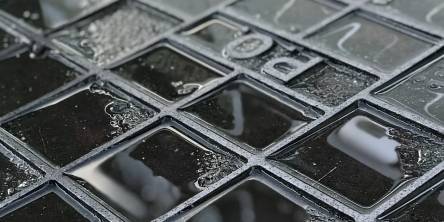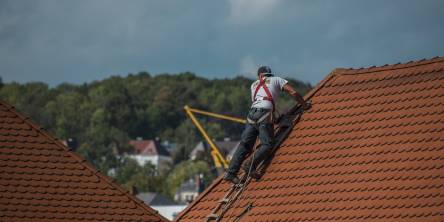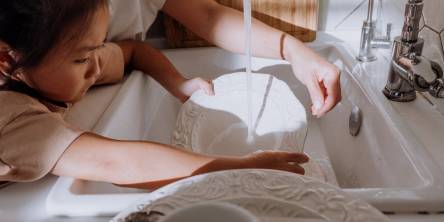5 Ways to Prevent Cool Air Loss

During the summer, all one can think about is how to stay cool without spending a fortune on HVAC energy bills. It's the reason why the loss of cool air from your home is a huge threat to your budget and health. The problem affects many people, regardless of their home sizes and location.
Cool air loss occurs when conditioned air starts escaping through cracks and vents. Lucky for you, with the right guidance, you can easily prevent and stop cool air loss from your house.
In this article, we'll discuss the top ways to improve your comfort by preventing cool air loss.
Repair Cracks and Openings

Image via Flickr by mike krzeszak
Cracks and openings are a major cause of cool air leaks in a house. You should inspect your home weekly to identify the gaps and seal them, caulking any cracks near the windows and doors to prevent air loss at home.
All you need to get started caulking is a caulking gun, a putty knife, and a scraper. These are cheap and easy to access. Sealing the cracks will also reduce cold spots and drafts, therefore, improve your overall home comfort.
Check the HVAC Insulation system
Home insulation is the second-best method of keeping your home warm and comfortable. It may seem counter-intuitive since insulators are believed only to hold warm air in the house. However, sealing your home correctly can also keep the warm air out of the house. Start by finding out where the hot air might find places to seep in. Be sure to fasten the restraint in your fireplace, feel around the doors and windows for warm airflow, and install the insulation where necessary.
Replace Your Air Filters
During the summer, dust and debris spread around fast. When dust accumulates on the HVAC air filters, the system requires more energy to cool the same amount of air. This is why you should clean your air filters each month in the summer. Air filters do two things. They clean the air that circulates through your HVAC system, allowing you to breathe fresh air inside your home, and they preserve the health of said system by keeping particles and gunk from building up on it. Replacing them is easy and cost-effective for you in terms of saving energy costs. Clean filters consume less energy and are effective in cooling your air at home.
Turn off Appliances
Even during the hottest summer days, you still need to cook, launder, and clean up. Home appliances normally generate a lot of heat, while you are trying to minimize it in your home. To be safe, you should turn off all unnecessary devices such as computers, Coffee makers, toasters, microwaves, dishwashers and washing machines electric sewing machines should all be switched off and unplugged to save electricity and protect your home from fire risk.and cook using the slow cookers to prevent sudden heat change. It's also advisable to enjoy summer grilling which takes the hot cooking outdoors.
Get Your Home Under a Shade
The process of keeping your home cool starts on the outside. Planting trees near your home can block intense sun rays from getting in the house during the peak of the season. You can also plant shrubs and bushes around the areas that need insulation.
Loss of cooled indoor air in the house can lead to both discomfort and an inflation on your bills. To keep yourself and your family safe, you should be keen on improving your indoor air quality. Using the right devices, you can also customize the temperature in each zone in your home.
Similar Articles
Learn how a tidy home boosts mental health, reduces stress, improves productivity, and enhances well-being with simple, practical cleaning tips.
Have you ever harboured dreams of constructing your dream home filled with bespoke designs, carefully selected fittings and high-quality finishes? Have you ever fretted over the durability, aesthetics, and overall quality of your construction project? Are you constantly in search for the perfect balance between beauty and strength?
Cockroaches are one of the most common pests found in homes and businesses, and they are known for their resilience and ability to thrive in even the most unsanitary conditions. These pests can quickly infest kitchens, bathrooms, and other areas, spreading bacteria, allergens, and other harmful pathogens.
A well-maintained yard drainage system is key to preserving the beauty and health of any property. Poor drainage can lead to standing water, soil erosion, and even foundational damage to structures over time.
Keep your seaside home in top shape with these 4 expert tips! Learn about weatherproof materials, smart maintenance, and managing coastal challenges effectively.
Explore the future of roofing! Discover energy-efficient materials, smart systems, and sustainable designs reshaping modern home construction trends.
HVAC stands for heating, ventilation, and air conditioning. These all-in-one systems keep your home comfortable and improve air quality throughout a building. Often used in commercial buildings, HVAC units are increasingly used in residential buildings.
Safeguard your home after storms with timely roof repairs. Detect damage early, choose durable materials, and rely on a pro for lasting protection and peace of mind.
Learn how to balance a clean home and family life with these 6 practical tips to manage clutter, involve kids in chores, and set realistic expectations.









